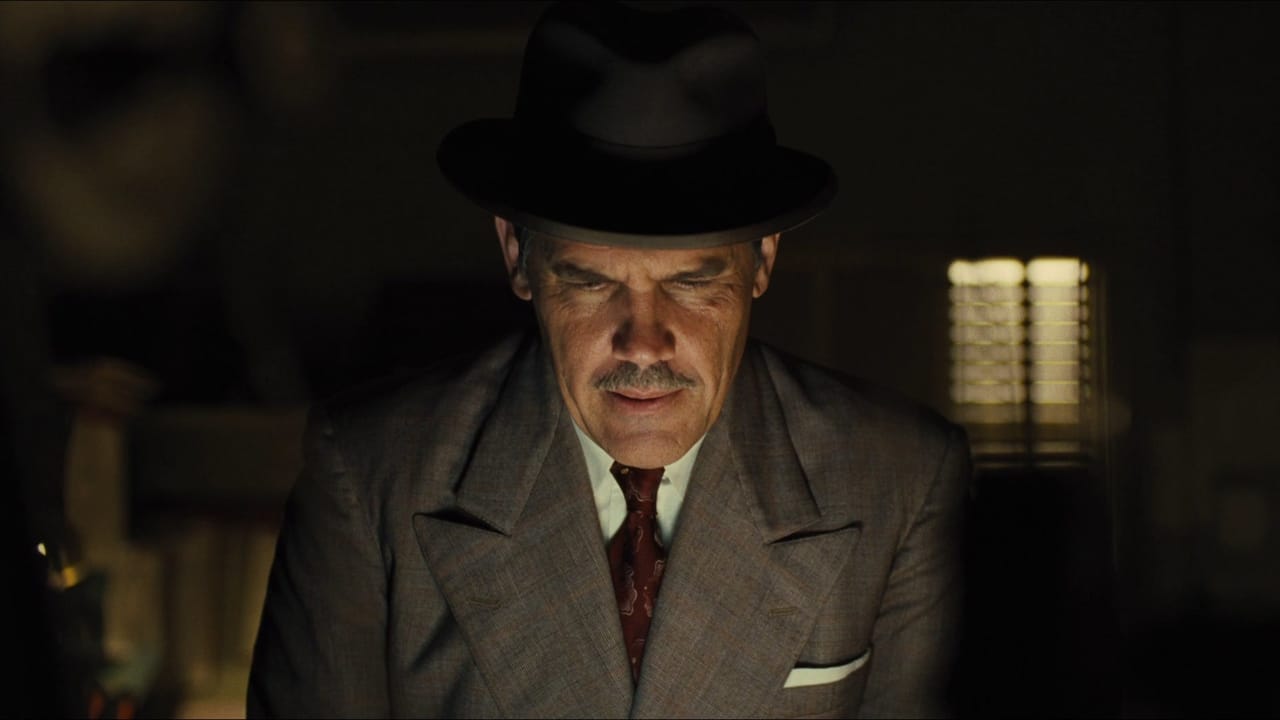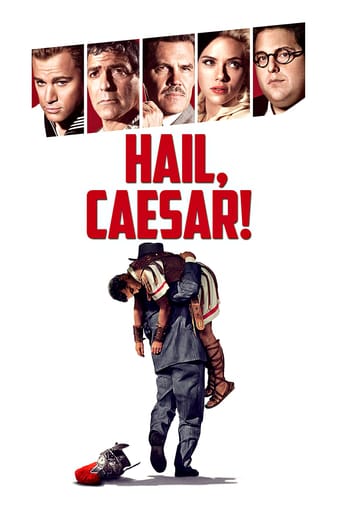harrisoncrutcher
The room is bad, but at least I can laugh at that. This movie has some great actors which got me to want to see it, but man it does not deserve the 6/10 that it has I think. I actually rate this lower than the room because no parts I could laugh at and it was so slow and nothing saved it for me. I felt like I was in the movie theater watching this for 3 hours instead of almost 2. I remember very little from this movie because I tried to block it from my memory so hard.
Patrick Borer (bakchu)
I usually like the work of the Coen Brothers, and I quite like this movie, too. But it's somewhat lacking in coherence, it's too episodic. Some wonderful and funny episodes, but a thin story. The main character isn't that interesting. And it ends rather abruptly, somewhat unsatisfying in my opinion.
SimonJack
"Hail Caesar" is billed as a comedy and mystery, but is mostly a satire of Hollywood. It has very little humor in the dialog, and unless one knows history, much of the plot may not make sense. That includes American history of the mid-20th century, and knowledge about Hollywood in the first half of the last century. With some knowledge in those areas, one can follow the plot and appreciate the humor in the exaggerated scenarios. An example of the latter is when some of the Hollywood communist cell take a small boat to deliver an agent and the ransom money to a Soviet submarine that surfaces off the coast of California. The film covers some of the culture of Hollywood at mid-20th century. But also omits mention of much of it that became known over time. Hollywood had many a scandal over drugs, crime and sex. In the main character, Eddie Mannix (played by Josh Brolin), the film tends to idolize the studio head. It puts Mannix on a pedestal for his 18-hour workdays, seven days a week, in which he holds the studio together. So, all of what Mannix does is whitewashed as essential to protect the stars, the studios, etc. One interesting inclusion is Tilda Swinton who plays sisters Thora Thacker and Thessaly Thacker. They are supposed to be Louella Parsons and Hedda Hopper, who were not real sisters. They were the famous Hollywood gossip columnists since the early 1930s. The little stories that Mannix has to play them to print or not print pale compared to the real stuff that the two rival columnists produced, publicized, promoted or buried. Other things about Hollywood of the time are barely mentioned or not at all. The assaults and murders, suicides and mysterious deaths, adulterous affairs, alcoholism and drug use, car accidents and many other real troubles that actors got into and that Hollywood tried to covere up. There's no mention here of the sex exploits of some studio heads with young actresses that could determine their careers. Enough real news and exposes have come out of Hollywood since before the mid-20th century, to conclude that Hollywood was a sordid sector of society. So, that's a list of some of the usual goings-on in and around Hollywood at least into the mid-20th century. This film skips or skims over much of that, but not all. It does have a pregnancy out of wedlock that is covered up, with a twist so that it doesn't look exactly like a couple of real instances. Instead, the Coen brothers, Ethan and Joel, take aim at the mid-20h century. And specifically, the time of the communist scares and type of film output from Hollywood then. It's somewhat of a social agenda about Hollywood kowtowing to the politics of the day. This is where some knowledge of history helps one follow the script. The House Un-American Activities Committee was investigating the influence of Communism in the entertainment field. The period was often labeled the McCarthy era, after Wisconsin Sen. Joseph McCarthy who said that communists infiltrated the U.S. State Department in numbers, and were gaining control throughout government. McCarthy had phony lists and in the end could produce very few names in support of his claims.But, public concern was fanned when real Soviet spies were caught or uncovered and Soviet individuals began defecting. This was happening in the U.S. England, Canada and other Western countries. A 1948 movie, "The Iron Curtain" is the story of a Soviet code worker in the U.S.S.R. embassy in Canada who defected. He provided information that uncovered an extensive Soviet espionage network in Canada and the U.S. It had been stealing American atomic secrets since the end of World War II. In 1953, the U.S. executed Julius and Ethel Rosenberg for their spy activities for the Soviet Union. As with most events in history, some people thought the Rosenbergs were innocent or had been railroaded. But much evidence was uncovered in Russia after the fall of the Soviet Union that detailed the great amount of espionage they had done for the U.S.S.R.
This time also was at the height of the Cold War when tensions between the Soviet Union and the West were near fever pitch. At the end of World War II, the Soviet Union controlled Eastern Europe. So most of those countries were under communist rule and weren't free until after the 1990 collapse of the U.S.S.R. The nuclear arms race was on between the Soviets and the U.S. Those who lived during that time well remember the air raid drills in the schools. By 1962, the U.S. and Russia would be near a nuclear war when Pres. John Kennedy ordered a naval roadblock to stock the Soviets from installing nuclear missiles in Cuba aimed at the U.S. I can't imagine that people without much knowledge of history would find this entertaining or be able to make much sense of it. As one who remembers the political history, I found "Hail, Caesar" just somewhat interesting. It was a recap of some bits of Hollywood history. But, it gosed over the real scandals The plot with the studio magnate, Mannix, seemed somewhat contrived. Yet, one could see it was needed to connect the rest of the parts of the film. With very little humor, this movie soon becomes tiring. That's not a very good recommendation for any movie.The funniest line in the film was by Hobie Doyle, the Western star, played by Alden Ehrenreich. Carlotta Valdez (Veronica Osorio) asks him, "How did you get into pictures, Hobie?" He replies, "Got roped into it."
jacklmauro
Before I die, I'd like someone to explain to me why the Coens are so revered. This offering, I grant you, lacks the usual scenes of sadism they like toss in. But that's pretty much all it's got going for it. First off, there's no story. None, and Clooney's being seduced by commie screenwriters is not a story. Then...what decade is this? Brolin uses a 1930s phone, the musical numbers are MGM late 1940s, and there's a singing cowboy star who would not be a star in the 1940s. THEN - the pastiche numbers. I've seen lots of Gene Kelly/sailor dancing films. Basically, I kept waiting for a movie to start. One never did.

